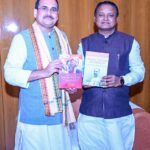The First Step Towards De-mythifying Nehru
- By : Anirban Ganguly
- Category : Articles
When he had just been two years in office, Prime Minister Nehru once wrote to a close colleague expressing a view which would, 15 years later, in a sense define the decadent political legacy he would eventually leave behind. “I have repeatedly made a mess of things, but, I hope, I have not forgotten the major ideals which Gandhiji taught us…His (Gandhiji’s) face comes up before me, gentle and reproachful, sometimes I read his writings, and how he asked us to stick to this or that to death, whatever others said or did. And yet these very things we were asked to stick to slip away from our grasp. Is that to be the end of our labour?” Indeed, after an uninterrupted 17 years of steering the ship of the Indian state, Nehru had led the nation “up the blind alley”.
In his new book, Nehru: A Troubled Legacy, RNP Singh, a former officer of the Intelligence Bureau and author of a number of books on modern India who is presently a senior fellow at the New Delhi-based Vivekananda International Foundation, examines in some detail Nehru’s legacy and weaves a narrative that looks at his other dimensions, shorn of all hagiographic sentimentalism.
Nehru, argues Singh, “left behind a confused and anaemic legacy of political culture, with the result that the foundation of Independence laid by him affected not only the present and the future generations of Congress party, but the entire political spectrum of the country… His arbitrary, autocratic and impulsive decisions shaped India’s political culture in such a way that it diverted the course of politics to the point of systemic failure for the first six decades of Independence”. Singh asks to “ponder as to what went wrong with the foundation of independent India”. Did the “pillars of freedom” go “to the hands of incapable architects?” This book provides significant points to ponder over these questions.
Arranged in eight chapters and with a large appendix section that brings together, for the benefit of the lay reader and serious researcher, a collection of letters that essentially deal with crucial issues in the Nehru era, Singh’s book comes as an important intervention in the process of dismantling the Nehruvian consensus. Chapters such as ‘Seeds of Dynastic Democracy’, ‘Betrayal of Democratic Values’ and ‘Defence Policy in Post-Independence India’ (1947-62) introduce dimensions that are bound to generate a greater interest and certainly aid in making a fresh start to the assessment of India’s first Prime Minister and his complex legacy.
The book’s manner of discussing Nehru’s shortcomings directly and unequivocally, and basing the discussion on solid primary and secondary sources, and its way of linking Nehru’s legacy to the challenges of the present Indian polity make the study even more interesting. The predominant Nehruvian narrative has almost always depicted him as a great democrat, liberal, man of vision and an indefatigable administrator. Singh’s work challenges each of these assumptions and through a complex web of arguments and analysis proves the hollowness or unilateralism of these.
In the end, the author observes that with the passage of time and with the “advent of genuine academic freedom one can be certain that many more tomes will follow to add to what we know about Nehru, the man and the politician. This will make for a more credible and dispassionate assessment of Nehru and for robust research in our universities”. And when this happens, argues Singh, “our view of Jawaharlal Nehru will change, the gap between history and truth will stand bridged” and the “coloured versions produced over the last sixty years… will cease to be relevant”.
Singh’s book is a decisive first step towards bridging that gap between “history and truth”; it is a major contribution to the de-mythification of Nehru.

















